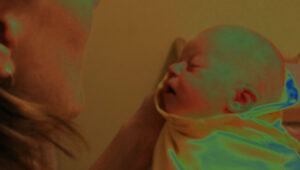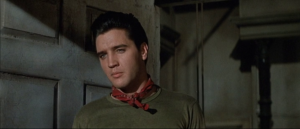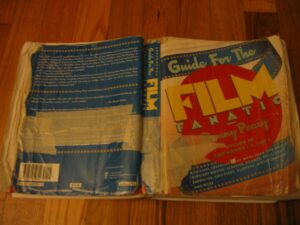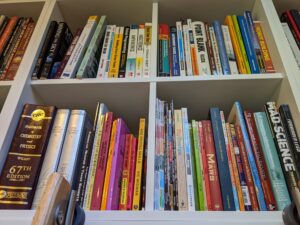
I’ve been working in academia for 12 years now – longer, if you count my four years as a graduate student. My goal in this post is to explore whether rainforest minds flourish in academia – and why or why not. I’ll begin by providing context for my own journey in this space.
As an undergraduate majoring in literature, I got good enough at theorizing and writing academic papers that I was told I should/could consider a career in academia. However, writing detailed analyses of novels, plays, and poetry – while satisfying as an abstract skill-set – didn’t strike me as particularly useful for the world. I was eager to get out and make things better, by teaching kids.
With that said, as I wrote about in a previous post, teaching elementary school only lasted so long as a novel learning sphere to explore. Earning my doctorate degree and taking my education studies to the “next level” felt like a logical next step once I had a few years of practical teaching experience under my belt.
I was naive enough to only apply to one institution: the local public R1 university in the major metropolitan city where I lived and worked. I crossed my fingers that things would work out okay (not knowing the slightest thing about how fickle graduate school admissions really are), and was lucky enough to be accepted for both a masters and a doctoral degree in one fell swoop. Whew.
I wasn’t sure exactly what I wanted out of academia other than the ability to “teach teachers”, but I was surprisingly clear in my focus on the end goal of earning a Ph.D. (This bears mentioning because of how often I’ve read about other RFMs starting degrees and not finishing them; for whatever reason, this wasn’t an issue for me. I’m actually a pretty hardcore “completist” about certain projects or goals in life, and this gets me through.)
I did worry, however, about how a career in academia would mesh with my goals of having a family. I wasn’t getting any younger (I was 29 when I started my four-year program), and knew I would need to make some high-stakes decisions pretty soon. I decided not to worry about it for the time being, and simply finish up – which I did.
When I got pregnant during my first year after graduation, I still wondered how it was all going to work out – but went ahead and applied for tenure line positions anyway. And, I got one. I gave birth to my daughter C. a couple of weeks before the start of the fall quarter at my new institution.
The position I accepted was at a local liberal arts college, with high expectations for teaching and community service, and low expectations for research output. This seemed in alignment with my goal of simultaneously being a new parent, but it meant I suddenly shifted into a radically different type of academic space than the one I’d been studying in for four years. It was a stark difference, to say the least – and while I adored being back “on the ground” with teachers, I missed the intellectual stimulation of being around so many top-notch researchers.
Within a few years, my husband and I decided we wanted to relocate to another state where raising our growing family would be both easier and cheaper – so, I bid adieu to my tenure-line position and sank into existential depression over what would come next for me work-wise. Thankfully, an inquiry email led to a meeting with someone at the major R1 university in my new city, who happened to be looking for a qualified instructor for a specific course, which turned into a part-time directorship of a masters program, then a full-time directorship, and eventually back to part-time once I realized I couldn’t actually stay healthy and parent my three kids effectively while working that much.
I’ve been on a 0.6 lecturer contract in academia for quite a few years now, and it’s been a nearly perfect balance in terms of workload and flexibility. I don’t really conduct much research of my own anymore; instead, I work with masters students on their “action research” projects, teach and construct plenty of classes, serve on doctoral committees, and generally stay immersed in academia without the pressures of “publish or perish” (though also without any of the job security or prestige associated with tenure-line work).
I mention all this as a backdrop to, and context for, the original topic of my post: rainforest minds in academia. Would one expect to find lots of rainforest minded-folks at the highest levels of study, or not – and why?
At first, the answer seems like an intuitive – yes, of course. Wouldn’t the world’s smartest, most curious people end up getting the most rigorous degrees possible and spending their lives surrounded by learning?
Well, yes and no. It’s likely that most people who’ve gotten doctorate degrees and landed jobs in academia were designated “gifted” as kids – meaning, they had “the capability to perform at higher levels compared to others of the same age, experience, and environment in one or more domains.”
But are they now rainforest minded adults? Not necessarily. Professors are not all “excessively curious, creative, smart and sensitive.”
Rather, many are single-mindedly focused on a specific area of inquiry, working long hours plugging away at incremental work that takes years of dedication. Conducting research, writing academic papers, submitting and resubmitting papers for publication, and seeking grant money can be grueling work that isn’t for the faint of heart – or for the fickle of interests.
Indeed, I’ve struggled over the years to stay sufficiently interested in any specific facet of my work (research-wise) for long enough to really make a dent in “the literature”, or make a name for myself. Each time I think I have an inkling of what I want to say, I find there’s more to explore and reflect on, and I’m off on another tangent. I just don’t quite have the type of relentless focus on singular projects required of highly productive academics.
However, there are some exceptions to the trope of what “highly productive” means in academia. The type of academics who can (and do) write articles and books for the broader public tend to take a more holistic approach to their work, looking not only deeply but broadly at any given problem. They make unusual connections, seek out new perspectives, and aren’t afraid to admit that their thinking has changed on a topic when provided with new evidence.
I believe these are rainforest minded academics.
Sadly, they’re all too rare. Most academics I’ve either known or know of tend to “stay in their lane” for the good of their own careers. There’s a fear of speaking with any semblance of authority (or even curiosity) about something one isn’t sufficiently grounded in with deep expertise as a scholar – which means oh-so-many potential “a ha” moments are lost in the noise of safety and specialization.
Speaking of safety, academia is a notoriously unsafe space to speak up about challenging topics. This is ironic, since you’d think scholars would be the first to throw out new and innovative ideas – but there’s an in-group tendency that can quite literally be stifling.
This primarily has to do with the peer-driven structure of academia, as colleagues rate your work and determine whether your contributions are sufficient to merit a promotion (and eventually tenure). It also has to do with what “counts” as useful contributions to one’s field. Community service at R1 institutions is lauded through lip service, but not given anything close to the same weight as publishing yet another paper in a peer-reviewed journal (which leads to plenty of “dead weight” recycling of similar ideas in slightly different guises).
It’s a tricky, sticky situation – one that’s ultimately led me to determine that academia isn’t really the ideal space for me. I’m far too interested in making a direct difference in the world, and speaking “the truth” as I know it. I don’t want to follow the “rules of the game” simply to get ahead. What would be the point of that?
So, I follow my conscience and my passions rather than a prescribed set of “guidelines for success”. While I managed to make it through the strictures of a doctoral degree and four years on the tenure line, apparently that was it for me.
And here I am with my rainforest mind, formally anchored to a specific field for the purposes of my job, but feeling like a permanent imposter (because if you don’t buckle down and focus in academia, you’re not really “the best”).
However, I’m not sure I have any other choice, given the way my brain works – and I’m also not sure I would necessarily be happier (or more content, or less questioning) if I were wired differently.
Life itself – huge, messy, complicated, untethered by institutional mandates – continues to beckon to me as a much more intriguing option.
Copyright © 2020 by HalfoftheTruth.org. Please feel free to share with attribution.


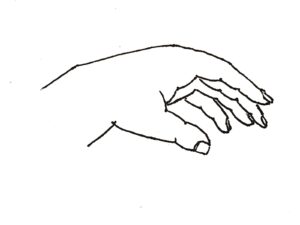


 Parenting is an interesting craft.
Parenting is an interesting craft.